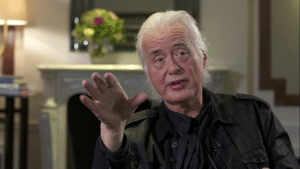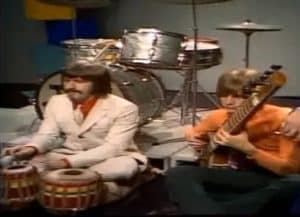It’s 2024 – So How Do We Define Classic Rock Now?

ACDC performs Let There Be Rock, 1977 - TheMudpunk / Youtube
The term “classic rock” has been debated over the years, especially as the line between what is considered “classic” and contemporary becomes more blurred. Is it defined by a specific time frame, or is it characterized by a particular sound? Let’s delve into what constitutes classic rock and its defining features.
Exploring the Definition and Evolution of Classic Rock
Classic rock is often associated with popular bands from the ’60s and ’70s, such as Led Zeppelin, The Rolling Stones, Aerosmith, AC/DC, Van Halen, Queen, Heart, and others. Additionally, many ’80s bands like Guns N’ Roses, Motley Crue, and Bon Jovi are also considered part of the classic rock sphere. Some classic rock radio stations even include ’90s rock and alternative bands, such as Nirvana, Red Hot Chili Peppers, and Smashing Pumpkins, as well as newer acts like Greta Van Fleet, Dorothy, and Mammoth WVH.
According to Live About, classic rock originated as a radio format in the 1980s, stemming from a previous format called album-oriented rock (AOR). Initially, it mainly played ’70s hard rock but later expanded to include rock from other decades as well.
Master Class defines classic rock as encompassing music made over three decades, ranging from ’60s psychedelia and ’70s album-oriented rock (AOR) to 1980s college rock, heavy metal, and 1990s grunge. It highlights that classic rock songs are often guitar-driven, with iconic vocalists like Robert Plant of Led Zeppelin, Mick Jagger of The Rolling Stones, and Axl Rose of Guns N’ Roses.
Classic rock is characterized by its guitar-driven sound, featuring vocals, bass guitar, and drums. Many classic rock guitarists used overdrive, distortion, or fuzz effects to add personality to their riffs and solos. The lyrics in classic rock songs often draw inspiration from personal situations, pop culture, or world events, while maintaining a lighthearted tone compared to later grunge bands, which focused more on societal observations.
View this post on Instagram
The Enduring Rebellion of Classic Rock
One of the defining qualities of classic rock bands was their rebellious nature. They were known for trashing hotel rooms, starting riots, and going on rants onstage, reflecting their disregard for societal norms.
However, the definition of classic rock can be vague, leading to debates about which bands fall under its umbrella. While it largely encompasses bands that rose to prominence during the ’60s, ’70s, and ’80s, there are newer groups praised for having a “classic rock sound.”
The emergence of bands like Greta Van Fleet, Dirty Honey, and Crown Lands has brought attention to the classic rock revival. Greta Van Fleet, in particular, garnered popularity in 2018 by incorporating vintage elements from the giants of the ’60s and ’70s into their music. Likewise, Dirty Honey became the first unsigned band in history to have a song top the rock charts. Crown Lands, on the other hand, explores historical events that took place on Indigenous lands in Canada through their music.
With the enduring popularity of “classic rock” artists and the emergence of younger bands with a similar sound, it is safe to say that classic rock is not merely an era but a genre in its own right. Its distinct characteristics include powerful vocals, exceptional musicianship, well-crafted lyrics, and the use of distorted, overdriven guitars. The attitude of classic rock is characterized by rebellion, love, and freedom.
Classic rock is a genre that encompasses a range of bands spanning several decades. It is defined by its guitar-driven sound, iconic vocalists, rebellious nature, and timeless appeal. Whether you’re rocking out to Led Zeppelin’s iconic riffs or discovering the modern-day revival of classic rock, this genre continues to leave an indelible mark on the music industry.











